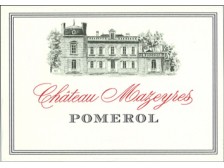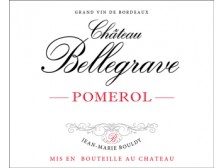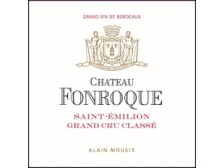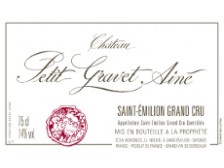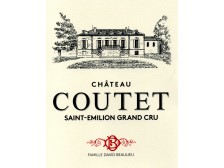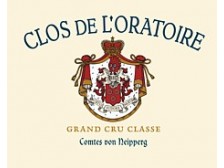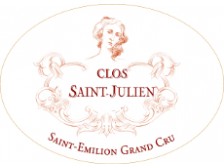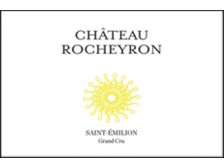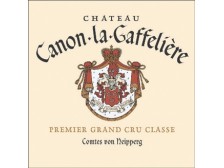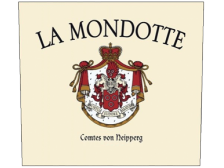Catalog
Other labels exist (Demeter, Biodyvin, Nature et Progrès...). These have more demanding specifications than organic farming but are not recognised by public agencies.
-
This beautiful 24-hectare estate has been run by Alain Moueix since 1992. He applies the same philosophy and methods as at Fonroque (Saint-Émilion): organic farming since 2015, biodynamic certification in 2018, search for freshness and elegance through controlled extractions... Mazeyres offers delicate and measured wines, without blush, with a great finesse of flavor that increases even more in recent vintages.
The 2022 vintage in the press:
La Revue du Vin de France (December 2025): 93/100 "Biodynamic farming and the quality of the vintage have produced a high-quality 2022. The fruit is brilliant, with a delicious richness. The balance on the palate is marked by a rare sapidity, making the whole delightfully flavourful. The subtle tannins promise twenty years of ageing potential."
Vinous (A. Galloni - January 2025): 92/100 "The 2022 Mazeyres is aromatic, bold and racy. Crushed flowers, sage, mint, spice, many of them in cooler spots within Pomerol, which was certainly a help in 2022. As a result, this retained terrific energy. Lifted floral and savory notes extend the clean, bracing finish."
Bettane + Desseauve (Guide 2026) : 92/100
More- To keep or to drink:
- Ready to drink
- Apogée:
- 2026-2037
- Organic certification:
- 2015
-
This beautiful 24-hectare estate has been run by Alain Moueix since 1992. He applies the same philosophy and methods as at Fonroque (Saint-Émilion): organic farming since 2015, biodynamic certification in 2018, search for freshness and elegance through controlled extractions... Mazeyres offers delicate and measured wines, without blush, with a great finesse of flavor that increases even more in recent vintages.
The 2021 vintage in the press:
La Revue du Vin de France (Guide 2025): 92/100 “This Pomerol is a must-have. We find the château's signature style, with the brilliance of fruit that characterizes it.”
Vinous (N.Martin - November 2023): 89/100 “The 2021 Mazeyres has a light nose with brambly red fruit, tertiary scents and forest floor, nicely defined if just missing a bit of vigor. The palate is medium-bodied with quite a sweet and candied opening and fine acidity, blueberry and cassis hints surfacing toward the floral finish. It has a brightness that is perhaps absent in some of its Pomerol peers.”
Bettane + Desseauve (Guide 2026) : 90/100
More- To keep or to drink:
- Ready to drink
- Apogée:
- 2024-2034
- Organic certification:
- 2015
-
As its name indicates, Bellegrave is on the crown of alluvial gravel of the Isle. With application, Mr. Bouldy has been offering for 40 years a true artisanal Pomerol, fresh, with velvety, energetic tannins and excellent keeping qualities.
More- To keep or to drink:
- Wait 1 to 2 years
- Apogée:
- 2027-2038
- Organic certification:
- 2012
-
As its name indicates, Bellegrave is on the crown of alluvial gravel of the Isle. With application, Mr. Bouldy has been offering for 40 years a true artisanal Pomerol, fresh, with velvety, energetic tannins and excellent keeping qualities.
The 2022 vintage in the press:
Vinous (A. Galloni - January 2025): 93/100 "The 2022 Bellegrave is powerful, vibrant Pomerol. Graphite, new leather, dark fruit and lavender unfurl in the glass. The 2022 has plenty of energy to match its broas, ample feel. Even with all of its obvious intensity. Bellegrave is so expressive. The blend of 75% Merlot and 25% Cabernet Franc works well."
More- To keep or to drink:
- Wait 1 to 2 years
- Apogée:
- 2028-2038
- Organic certification:
- 2012
- Potential alcohol:
- 14%
-
As its name indicates, Bellegrave is on the crown of alluvial gravel of the Isle. With application, Mr. Bouldy has been offering for 40 years a true artisanal Pomerol, fresh, with velvety, energetic tannins and excellent keeping qualities.
Rated 91/100 by N. MARTIN «The 2020 Bellegrave is well-defiened and poised on the nose, blackberry and briary, hints of truffle unfolding with aeration. The palate is medium-bodied with a graphite-infused entry. Quite solid and structured, almost like a "mini-Lafleur", with a well-definied and persistent finish that has a splendid minerality. Very Fine » (December 2022)
More- To keep or to drink:
- Ready to drink
- Apogée:
- 2024-2034
- Organic certification:
- 2012
-
As its name indicates, Bellegrave is on the crown of alluvial gravel of the Isle. With application, Mr. Bouldy has been offering for 40 years a true artisanal Pomerol, fresh, with velvety, energetic tannins and excellent keeping qualities.
The 2020 vintage in the press:
Vinous (N. Martin - December 2022): 91/100 “Bellegrave 2020 is well defined and balanced on the nose, with aromas of blackberry and brioche, and hints of truffle that develop with aeration. The palate is medium-bodied, with an entry marked by graphite. Very solid and structured, almost like a “mini-Lafleur”, with a well-defined, persistent finish featuring splendid minerality. Very fine”.
More- To keep or to drink:
- Ready to drink
- Apogée:
- 2025-2035
- Organic certification:
- 2012
-
The amateur looking for fine and easily digestible classified great wines should be interested in Fonroque. In organic cultivation since 2006 and biodynamic cultivation since 2008, Fonroque offers an original vision of the terroir of the Saint-Émilion plateau, made up of freshness, elegance and controlled, melting power. A “wine of emotion”, as Michel Bettane and Thierry Desseauve describe it.
Alain Moueix, its director (and former owner), is clearly showing the way forward for the future of Bordeaux's great wines, on all shores.More- To keep or to drink:
- Wait 1 to 2 years
- Apogée:
- 2027-2037
- Organic certification:
- 2006
-
The amateur looking for fine and easily digestible classified great wines should be interested in Fonroque. In organic cultivation since 2006 and biodynamic cultivation since 2008, Fonroque offers an original vision of the terroir of the Saint-Émilion plateau, made up of freshness, elegance and controlled, melting power. A “wine of emotion”, as Michel Bettane and Thierry Desseauve describe it.
Alain Moueix, its director (and former owner), is clearly showing the way forward for the future of Bordeaux's great wines, on all shores.The 2022 vintage in the press:
La Revue du Vin de France (Guide 2026) : 94/100 Coupe de ♥ "The superb 2022 shows the contemporary direction of Saint-Émilion, with the search for a very frank expression of the Merlot-Cabernet Franc duo. An aromatic wine (liquorice, black fruits, flowers...), full of light, sincere, full-bodied, with a fresh, straightforward finish."
En Magnum (May 2025):"The very high age of the vineyard, with some Cabernet plots over 80 years old, is one of the factors behind this wine's success, with its notes of cedar on the nose and spices in the tannin. A successful 2020 vintage with finesse, a fruity character and tannins that are not harsh. We recommend it."
Vinous (A. Galloni - January 2025): 92/100 "The 2022 Fonroque is plush, sensual and quite deep. Silky tannins enshroud a core of dark cherry/plum fruit, new leather, spice, menthol and espresso. This juicy, open-knit Saint-Émilion from Alain Moueix is a winner."
J.M Quarin (February 2025): 92/100 "Dark, intense purple colour. Very aromatic nose, pure, subtle, with fresh fruit. Delicate on the entry, delicate in the middle, with taste and a refined touch, the wine develops aromatically, bouncing back, sappy, towards a long finish with noble tannicity. A very good wine. The best ever made with the 2020."
Bettane + Desseauve (Guide 2026) : 95/100
More- To keep or to drink:
- Ready to drink
- Apogée:
- 2025-2037
- Organic certification:
- 2006
-
The amateur looking for fine and easily digestible classified great wines should be interested in Fonroque. In organic cultivation since 2006 and biodynamic cultivation since 2008, Fonroque offers an original vision of the terroir of the Saint-Émilion plateau, made up of freshness, elegance and controlled, melting power. A “wine of emotion”, as Michel Bettane and Thierry Desseauve describe it.
Alain Moueix, its director (and former owner), is clearly showing the way forward for the future of Bordeaux's great wines, on all shores.The 2021 vintage in the press:
La Revue du Vin de France (Guide 2025): 91/100 “A half-bodied wine with beautiful tones of spices and tangy red fruit. There's a real sincerity of expression, and the al dente ripeness of the grapes can be perceived in this firm, still tight finish.”
Vinous (A. Galloni - December 2023): 92/100 “The 2021 Fonroque is an exotic, beguiling wine. Deep and intensely savory, the 2021 offers a striking mix of merlot fruit and Cabernet Franc aromatics. Crushed flowers, mint, spice, rose petal and bright red-toned fruit all run through silky super-expressive Saint-Emilion.”
More- To keep or to drink:
- Ready to drink
- Apogée:
- 2025-2034
- Organic certification:
- 2006
-
An oenologist by training, Ms. Papon-Nouvel owns two tiny properties at the bottom of Saint-Émilion near Canon-La Gaffelière: Petit Gravet Aîné (2.4 ha) and Clos Saint-Julien (1.3 ha), where the vines are mainly old cabernets francs. From the vine to the cellar, she manages all the stages in the production of her wines on her own and, whatever the vintage, her talent as an instinctive winemaker gives wines of natural elegance and exemplary sweetness.
More- To keep or to drink:
- Wait 1 to 2 years
- Apogée:
- 2027-2036
- Organic certification:
- 2011
-
An oenologist by training, Ms. Papon-Nouvel owns two tiny properties at the bottom of Saint-Émilion near Canon-La Gaffelière: Petit Gravet Aîné (2.4 ha) and Clos Saint-Julien (1.3 ha), where the vines are mainly old cabernets francs. From the vine to the cellar, she manages all the stages in the production of her wines on her own and, whatever the vintage, her talent as an instinctive winemaker gives wines of natural elegance and exemplary sweetness.
The 2022 vintage in the press:
Vinous (A. Galloni - January 2025): 94/100 "The 2022 Petit Gravet Aîné is a gorgeous, exotic wine. Kirsh, dried flowers, mocha and new leather open. Ripe, fleshy and layered, the 2022 is definitely on the riper side. Creamy and opulent in texture, it clearly needs time to settle down post-bottling. Today, I admire its blance. This is a wild wine that is sure to take readers on quite a ride over the coming two decades or so, maybe more."
J-M Quarin (February 2025): 89/100 "Dark, lively colour. Normal intensity. Very aromatic, fruity, fresh and spicy nose. Delicate on the palate, well-fruited in the middle, with a body that is more slender than broad, the wine evolves upwards on the finish. Slightly firm on the finish, but still fragrant."
Bettane + Desseauve (Guide 2026) : 93/100
More- To keep or to drink:
- Wait 1 to 2 years
- Apogée:
- 2027-2040
- Organic certification:
- 2011
-
An oenologist by training, Ms. Papon-Nouvel owns two tiny properties at the bottom of Saint-Émilion near Canon-La Gaffelière: Petit Gravet Aîné (2.4 ha) and Clos Saint-Julien (1.3 ha), where the vines are mainly old cabernets francs. From the vine to the cellar, she manages all the stages in the production of her wines on her own and, whatever the vintage, her talent as an instinctive winemaker gives wines of natural elegance and exemplary sweetness.
The 2021 vintage in the press:
Vinous (N. Martin - February 2024): 92/100 “The Petit Gravet Ainé 2021 presented itself well right from the barrel. Dominated by 90% Cabernet Franc, it has a fresh, saline bouquet that manages to reach phenolic maturity. The palate is medium-bodied, with crisp tannins on the attack that transform into a creamy-textured mid-palate and a very consistent finish, tinged with white pepper and garrigue. Excellent!”
More- To keep or to drink:
- Ready to drink
- Apogée:
- 2026-2035
- Organic certification:
- 2011
-
An oenologist by training, Ms. Papon-Nouvel owns two tiny properties at the bottom of Saint-Émilion near Canon-La Gaffelière: Petit Gravet Aîné (2.4 ha) and Clos Saint-Julien (1.3 ha), where the vines are mainly old cabernets francs. From the vine to the cellar, she manages all the stages in the production of her wines on her own and, whatever the vintage, her talent as an instinctive winemaker gives wines of natural elegance and exemplary sweetness.
The 2018 vintage in the press:
Vinous (A. Galloni - March 2021): 96/100 “The 2018 Petit Gravet Aîné dazzles right out of the bottle. Cabernet Franc signatures are front and center in Saint-Émilion that boasts magnificent aromatic presence as well as depth. Rose petal, mocha, kirsh, menthol and sage are some of the many notes that open with some coaxing. A few years in bottle will do wonders for the tannins. Aside from the wine's striking beauty, Petit Gravet Aîné is one of the most unique, distinctive wines in Bordeaux, the sort of wine that remains seared on your memory. In a word: magnificent!”
More- To keep or to drink:
- Ready to drink
- Apogée:
- 2026-2038
- Organic certification:
- 2011
-
Away from fashions and deliberately away from rankings, Coutet is a unique estate: a 13-hectare vineyard (planted exclusively with autochthonous massal selection, old vines up to 100 years old) that has never known any phytosanitary products, owned since the 18th century by the same family (David-Beaulieu, 14th generation). Surrounded by prestigious neighbors (between Angélus, Grand-Mayne and the two Beauséjour), Coutet produces fine wines without artifice, fleshy and deep without being massive, finely extracted without dryness or tannic hardness. An authentic cru, particularly endearing in its family and eco-citizen approach.
Awarded two stars in the 2026 Guide of the Revue du Vin de France.
The 2022 vintage in the press:
La Revue du Vin de France (Guide 2026): 94/100 "Its tannic structure reveals a magnificently concentrated texture, with a very strong chalky effect that mimics the finish and prolongs the flavours. This 2022 vintage (60% Merlot, 30% Bouchet, 7% Prayssac, 3% Cabernet Sauvignon) is a thrilling experience to taste. And it promises to age gracefully."
More- To keep or to drink:
- Ready to drink
- Apogée:
- 2026-2038
- Organic certification:
- 2012
-
Away from fashions and deliberately away from rankings, Coutet is a unique estate: a 13-hectare vineyard (planted exclusively with autochthonous massal selection, old vines up to 100 years old) that has never known any phytosanitary products, owned since the 18th century by the same family (David-Beaulieu, 14th generation). Surrounded by prestigious neighbors (between Angélus, Grand-Mayne and the two Beauséjour), Coutet produces fine wines without artifice, fleshy and deep without being massive, finely extracted without dryness or tannic hardness. An authentic cru, particularly endearing in its family and eco-citizen approach.
Awarded two stars in the 2026 Guide of the Revue du Vin de France.
More- To keep or to drink:
- Ready to drink
- Apogée:
- 2023-2036
- Organic certification:
- 2012
-
Away from fashions and deliberately away from rankings, Coutet is a unique estate: a 13-hectare vineyard (planted exclusively with autochthonous massal selection, old vines up to 100 years old) that has never known any phytosanitary products, owned since the 18th century by the same family (David-Beaulieu, 14th generation). Surrounded by prestigious neighbors (between Angélus, Grand-Mayne and the two Beauséjour), Coutet produces fine wines without artifice, fleshy and deep without being massive, finely extracted without dryness or tannic hardness. An authentic cru, particularly endearing in its family and eco-citizen approach.
Awarded two stars in the 2026 Guide of the Revue du Vin de France.
More- To keep or to drink:
- Ready to drink
- Apogée:
- 2023-2035
- Organic certification:
- 2012
-
As well maintained as Canon-La Gaffelière (same owner), under the direction of Mr. Derenoncourt, Clos de l'Oratoire offers practically the same fullness and intensity for half the price.
The 2022 vintage in the press:
La Revue du Vin de France (Guide 2026): 90/100 "This 2022 promises great maturity, highlighting the fullness and richness of the vintage, with its well-balanced tannins. It is a full-bodied, slightly extravagant wine. It will appeal to palates seeking smoothness and richness."
Vinous (A. Galloni - January 2025): 95/100 "The 2022 Clos de l'Oratoire is a gorgeous, sensual wine. At the same time, it is quite the powerhouse. The 2022 is a blend of 80% Merlot and 20% Cabernet Franc, so a bit more Franc than was once the norm. That, along with earlier picking, has brought added aromatic intensity and structure. Rose petal, dried herbs, orange peel, mint and sage play off a core of dark red-toned fruit. Give this time."
Bettane + Desseauve (Guide 2026) : 93/100
More- To keep or to drink:
- Wait 1 to 2 years
- Apogée:
- 2027-2034
- Organic certification:
- 2020
-
As well maintained as Canon-La Gaffelière (same owner), under the direction of Mr. Derenoncourt, Clos de l'Oratoire offers practically the same fullness and intensity for half the price.
The 2021 vintage in the press:
Vinous (A. Galloni - December 2023): 94/100 “The 2021 Clos de l'Oratoire is a gorgeous, dynamic wine. Energetic and brillant, the 2021 sizzles with tension. Bright acids and veins of tannin give the wine its vibrant personality. Dark red/purplish fruit, lavender, rose petal, mint and mocha abound. This is a very, very fine Clos de l'Oratoire.”
More- To keep or to drink:
- Ready to drink
- Apogée:
- 2026-2036
- Organic certification:
- 2020
-
As well maintained as Canon-La Gaffelière (same owner), under the direction of Mr. Derenoncourt, Clos de l'Oratoire offers practically the same fullness and intensity for half the price.
The 2020 vintage in the press:
Vinous (N. Martin - January 2024): 92/100 “The 2020 Clos de l'Oratoire has a crisp and pure bouquet with blackberry and raspberry fruit mixed with cedar and potpourri. A judicious dose of new oak adds complexity. The palate is medium-bodied with fine tannins and graphite-infused red fruit, with a linear, fresh and almost Left Bank finish. Excellent.”
La Revue du Vin de France (November 2023): 90/100 “Endowed with natural generosity, the wine is built on a charmingly coated material. It's a well-calibrated wine, driven with a certain precision, with a seductive envelope, right through to an allonge that assumes the richness of this 2020 vintage.”
More- To keep or to drink:
- Wait 1 to 2 years
- Apogée:
- 2027-2038
- Organic certification:
- 2020
-
Mrs Papon-Nouvel's other grand cru (with Petit Gravet Aîné). Same organic culture, same sensitivity, same style, with extra flesh and depth. Great wine! Great wine, logically promoted to grand cru classé in 2022.
More- To keep or to drink:
- Wait 1 to 2 years
- Apogée:
- 2028-2040
- Organic certification:
- 2011
-
Mrs Papon-Nouvel's other grand cru (with Petit Gravet Aîné). Same organic culture, same sensitivity, same style, with extra flesh and depth. Great wine! Great wine, logically promoted to grand cru classé in 2022.
The 2022 vintage in the press:
Vinous (A. Galloni - January 2025): 96/100 "The 2022 Clos Saint-Julien is a showstopper from proprietor Catherine Papon Nouvel. Paradoxically, it seems to have handled the intense heat and drought better than the Petit Gravet Aîné, even though there is more Merlot here. Then again, this tiny parcel is perched on Saint-Émilion's famed limestone plateau. Inky dark fruit, chocolate, licorice, lavender and menthol all stain the palate. The long, sustained finish is a thing of beauty."
J.M Quarin (February 2025): 95/100 "Dark, intense purple colour. Very aromatic nose, fine, fruity, subtle, deep and particularly fresh, yet very ripe. Meticulous on the entry, very, very tasty in the middle, with class in the touch and an ascending development, the wine rises, rises, long, ample, fragrant and even complex. Long, full, fragrant and even complex. Delicious and very precise. A quality of expression that suggests that a higher step is within reach. Well done and to be continued!"
Bettane + Desseauve (Guide 2026) : 95/100
More- To keep or to drink:
- Wait 1 to 2 years
- Apogée:
- 2028-2042
- Organic certification:
- 2011
-
Mrs Papon-Nouvel's other grand cru (with Petit Gravet Aîné). Same organic culture, same sensitivity, same style, with extra flesh and depth. Great wine! Great wine, logically promoted to grand cru classé in 2022.
The 2021 vintage in the press:
Vinous (A. Galloni - February 2024): 94/100 “Clos Saint-Julien 2021 is sublime. Delicate, silky and wonderfully nuanced, Clos Saint-Julien is exquisite in this vintage. almond, plum, spice, menthol, licorice and mocha are just a few of the many nuances that run through this exceptionally refined and subtle Saint-Émilion.”
Bettane + Desseauve (Guide 2026) : 91/100
More- To keep or to drink:
- Wait 1 to 2 years
- Apogée:
- 2028-2040
- Organic certification:
- 2011
-
Mrs Papon-Nouvel's other grand cru (with Petit Gravet Aîné). Same organic culture, same sensitivity, same style, with extra flesh and depth. Great wine! Great wine, logically promoted to grand cru classé in 2022.
The 2020 vintage in the press:
Vinous (A. Galloni - December 2022): 96/100 "The 2020 Clos Saint-Julien is a gorgeous, sumptuous beauty. Crème de cassis, blueberry fruit, lavender, licorice and spice infuse the 2020 with tons of nuance to match its flamboyant personality. Clos Saint-Julien is a heady, voluptuous Saint-Émilion that truly delivers the goods. Superb."
More- To keep or to drink:
- Wait 3 to 5 years
- Apogée:
- 2029-2043
- Organic certification:
- 2011
-
Mrs Papon-Nouvel's other grand cru (with Petit Gravet Aîné). Same organic culture, same sensitivity, same style, with extra flesh and depth. Great wine! Great wine, logically promoted to grand cru classé in 2022.
The 2019 vintage in the press:
Vinous (A. Galloni - January 2022): 94/100 "The 2019 Clos Saint-Julien is just as fabulous from bottle as it was i barrel. Dense and explosive in feel, the 2019 captures the more opulent side of the year in grand style. Dark blue/purplish fruit, lavender, cloves menthol and licorice all wrap around the palate, framed beautifully by plush, soft contours. Proprietor Catherine Papon-Nouvel has once again turned out a captivating wine from her tiny 1.2-hectare vineyard on Saint-Émilion's limestone plateau."
More- To keep or to drink:
- Wait 1 to 2 years
- Apogée:
- 2027-2040
- Organic certification:
- 2011
-
Rocheyron is the result of a friendly and professional partnership between Sylvio Denz (Faugères and Lafaurie-Peyraguey) and Peter Sisseck (Pingus). Since 2010, they have been investing in this small 8-hectare vineyard, located entirely on the asteriated limestone plateau characteristic of Saint-Émilion: tilling the soil, conversion to organic farming (certified in 2020), gentle vinification at low temperatures... Rocheyron is constantly progressing, and each year offers wines with an unequalled tannic softness.
Listed in the Revue du Vin de France guide in 2026.
The 2023 vintage in the press:
La Revue du Vin de France (December 2025): 95/100 "The limestone dimension bursts forth on the nose, followed by floral nuances. Perfectly styled tannins give this 2023 a magnificent texture. Great depth for serene development. A property taken over in 2021 by Pingus (Ribera del Duero, Spain) oenologist Peter Sisseck and Swiss businessman Silvio Denz in 2010, it is climbing to the top of the Saint-Émilion hierarchy."
More- To keep or to drink:
- Wait 1 to 2 years
- Apogée:
- 2028-2040
- Organic certification:
- 2020
- Grape varieties:
- 75% Merlot, 25% Cabernet franc
-
Rocheyron is the result of a friendly and professional partnership between Sylvio Denz (Faugères and Lafaurie-Peyraguey) and Peter Sisseck (Pingus). Since 2010, they have been investing in this small 8-hectare vineyard, located entirely on the asteriated limestone plateau characteristic of Saint-Émilion: tilling the soil, conversion to organic farming (certified in 2020), gentle vinification at low temperatures... Rocheyron is constantly progressing, and each year offers wines with an unequalled tannic softness.
Listed in the Revue du Vin de France guide in 2026.
The 2022 vintage in the press:
La Revue du Vin de France (Guide 2026) : 94/100 Coup de ♥ "Still sullen, this 2022 asserts its striking density. The still combative tannins deserve three to four years of cellaring to release a ripe and solid substance. The limestone dimension is strongly present on the finish."
More- To keep or to drink:
- Ready to drink
- Apogée:
- 2026-2042
- Organic certification:
- 2020
-
Rocheyron is the result of a friendly and professional partnership between Sylvio Denz (Faugères and Lafaurie-Peyraguey) and Peter Sisseck (Pingus). Since 2010, they have been investing in this small 8-hectare vineyard, located entirely on the asteriated limestone plateau characteristic of Saint-Émilion: tilling the soil, conversion to organic farming (certified in 2020), gentle vinification at low temperatures... Rocheyron is constantly progressing, and each year offers wines with an unequalled tannic softness.
Listed in the Revue du Vin de France guide in 2026.
The 2021 vintage in the press:
La Revue du Vin de France (2026 Guide): 92/100 "In this rather late vintage, Rocheyron bursts onto the scene with an extremely mouth-watering straightforwardness."
More- To keep or to drink:
- Wait 3 to 5 years
- Apogée:
- 2029-2038
- Organic certification:
- 2020
-
Owned by Mr. Neipperg (Clos de l'Oratoire, La Mondotte, d'Aiguilhe) at the foot of the hill Ausone.
The 2022 vintage in the press:
La Revue du Vin de France (Guide 2026): 95/100 Coup de ♥ "The proportion of Cabernet Franc (35%) and Sauvignon (15%) brings a particular freshness to this colourful and concentrated 2022. It manages to retain its brightness, elegance in its texture and an extremely flavourful, full finish. It will evolve with panache and serenity."
J-M Quarin (February 2025): 94/100 “Intense, dark-red crimson color. Moderately aromatic nose, fruity and truffled. Full-bodied on the attack, fleshy in the mid-palate, the wine melts on the palate, juicy and more united than ever in its unfolding. This is what makes it so attractive. Good length with no tannic angle."
Vinous (N. Martin - February 2025 ) : 94/100 “The 2022 Canon La Gaffelière, from Von Neipperg's stable, needed time to open in the glass. Initially understated, it offers brambly red fruit, undergrowth and limestone scents that gain cohesion with aeration. The palate is fresh and vibrant with chalky tannins and a silver bead of acidity. It's taut and linear yet with ample tart red fruit enlivening the finish. This classically-styled, slightly peppery Canon La Gaffelière should age will in bottle. It is excellent.”
Bettane + Desseauve (Guide 2026) : 97/100
More- To keep or to drink:
- Wait 1 to 2 years
- Apogée:
- 2028-2044
- Organic certification:
- 2014
-
Owned by Mr. Neipperg (Clos de l'Oratoire, La Mondotte, d'Aiguilhe) at the foot of the hill Ausone.
The 2019 vintage in the press:
Vinous (N. Martin - January 2023): 93/100 “The 2019 Canon-La-Gaffelière is quite punchy and bold on the nose. Blackberry and raspberry fruit, cedar and mint emerge with time. The palate is medium-bodied with rounded tannins, quite plush yet cohesive, fanning out towards the velvety finish with a brush of white pepper on the aftertaste. One of the more approachable Saint-Emilion wines in this vintage”.
La Revue du Vin de France (September 2022): 95/100 “The discreet charm of this wine with its creamy tannins is exciting. The cru reveals itself at its best in dry, hot years thanks to the composition of its clays. The southern exposure is reflected in the wine's depth. Its pronounced black fruit is densely packed with tannin that remains fresh thanks to the Cabernet Franc massales. Still under the influence of wood, the wine's rich, well-coated texture and elegant structure are perfumed with a hint of smoke".
More- To keep or to drink:
- Ready to drink
- Apogée:
- 2026-2038
- Organic certification:
- 2014
-
Become a first grand cru classé in 2012, just reward for 20 years of effort by Mr. Neipperg (Canon-La Gaffelière, Clos de l'Oratoire) on this small vineyard of 4.5 ha adjoining Troplong-Mondot. A very large Saint-Émilion, fleshy, intense and penetrating, but with a confidential production.
The 2021 vintage in the press:
La Revue du Vin de France (Guide 2025): 94/100 “A stylish, elegant 2021. It combines the breed of the terroir, the freshness of the vintage and the seductive touch of the winemaker”.
Vinous (A. Galloni - December 2023): 95/100 “The 2021 La Mondotte is a dense, potent beauty, with depths of black vherry, plum, gravel, scorched earth, leather, lavender and incense. In 2021, Mondotte is quite savory and brooding, a style with freshness and less opulence than most years. It's alos a wine that needs time. I imagine the 2021 will always be a pretty dark Saint-Emilion.”
Bettane + Desseauve (Guide 2026) : 94/100
More- To keep or to drink:
- Wait 1 to 2 years
- Apogée:
- 2027-2038
- Organic certification:
- 2014


